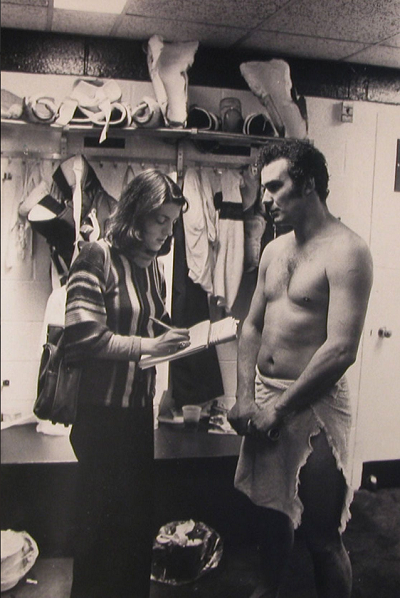Now before I lay into this, fair is fair: Peter Jackson’s The Lord of the Rings had a real habit of having the horses almost always move at the trot or the canter when they ought to have been walking (horses have four “gaits” – patterns of moving – which, in escalating speed are the walk, the trot, the canter and the gallop). Horses can walk or trot for long periods, but canters and gallops can only be maintained in short bursts before the horse wears itself out. So for instance when Théoden leads the Rohirrim from Edoras in Return of the King the horses are walking in the city but by the time they’re in column out of the city the whole column is moving at a canter (interestingly, you can hear the three-beat pattern of the canter in the foley, which is some attention to detail), which is not realistic – they have a long way to go and they won’t be able to maintain this gait the whole way – but fits the forward momentum of the scene. Likewise most of the horses look to be at a canter when his army leaves Dunharrow for Gondor; again this is a bit silly, but on roughly the level of silly of having Aragorn, Legolas and Gimli pursue a band of orcs by jogging for three days and nights without rest.
By contrast [in Rings of Power], the Númenóreans rush to the battle at a full gallop, apparently the whole way or at the very least for hours through the morning. Horses will be vary, but generally two to three miles is the maximum distance most horses can gallop before fatigue sets in (for most horses this distance is going to be shorter), which they’re going to cover in about six minutes. The gallop is a very fast (25-30mph), very short sprint, yet Galadriel has this whole formation at full gallop even before she can see their destination. And I just want to remember here the absurdity that these horsemen do not even know there is a battle to ride to; for all they know this is a basic scouting effort (which might be better accomplished slowly and without wearing down all of the horses). Théoden at least has the excuse that he’s on the clock and knows it!
The way we are then shown the cavalry arriving is very confusing to me. The speed of their arrival makes at least some sense. We have already established that both Arondir and Adar are incompetent commanders so the fact that they have set no scouts or lookouts checks out. Pre-modern and early-modern cavalry could effectively out-ride news of their coming, and so show up unexpectedly in places with very little warning. Not this little warning, mind you – the time from the first sound of hoof-falls (heard by Elves – the orcs evidently hear nothing) to the cavalry deluging the village is just about fifteen seconds; horses move fast but they do not move that fast (at full gallop a horse might cover 150-200 meters in those fifteen seconds and the orcs would absolutely hear them coming before they saw them). But the idea in general that the Númenórean cavalry could appear as if out of nowhere to the orcs checks out – that was one of the major advantages of cavalry operations.
Bret Devereaux, “Collections: The Nitpicks of Power, Part III: That Númenórean Charge”, A Collection of Unmitigated Pedantry, 2023-02-03.
May 23, 2023
QotD: Cavalry operations in Rings of Power versus cavalry operations in history
May 15, 2023
“Donald Trump is, as a performer, in a class of his own. From the second the show began, he was in command: withering, funny, sharp, powerful.”
I didn’t watch the CNN broadcast that Andrew Sullivan is reluctantly praising here — he still hates and fears Donald Trump, but he has to acknowledge the man’s abilities:
The reason so many are freaking out about CNN’s astonishing ad for the Trump re-election campaign this week is that he was on tip-top form. Donald Trump is, as a performer, in a class of his own. From the second the show began, he was in command: withering, funny, sharp, powerful. He may be one of the most effective and pathological demagogues I’ve ever encountered: capable of lying with staggering sincerity, of making up stories with panache: shameless, and indefatigable.
Now think of Joe Biden, peace be upon him. He can barely get a sentence out without a mumble, a slur, or a confused expression. He seems frail and distant. In a direct contrast between the two old men, there will surely be some voters — and maybe many — who simply back the man who seems capable of doing the job vigorously for four more years. There hasn’t been this kind of contrast since Clinton-Dole (and Dole in 1996 was sharp AF) and Reagan-Mondale (it took Reagan’s debate genius to destroy the concern). Trump, in stark contrast, bulldozed the host Kaitlan Collins, who was far more in charge of facts and details than Biden will ever be.
Shamelessness has a huge appeal. It’s why we can’t see a production of Richard III without at some points egging on the child-murderer. And I confess that watching the deposition conducted by Robbie Kaplan, he got me. When Trump says to Kaplan, after dismissing Carroll as “not his type”, “You would not be my choice of mine either, to be honest with you. I hope you’re not insulted”, I LOLed. It was disgusting — but how could you not laugh at the effrontery?
At one point in the CNN show, Trump took the performance up a notch — sympathizing with E Jean Carroll’s husband:
He was a newscaster, very nice man. She called him an ape, happens to be African-American. Called him an ape — the judge wouldn’t allow us to put that in. Her dog or her cat was named “Vagina”, the judge wouldn’t allow to put that in.
Sorry, but the way he delivered the word “vagina” was worthy of a good stand-up. And the affect — the lone ranger telling the truth while prissy elites tut-tut — channels a vast swathe of the public mood.
The issues are also turning Trump’s way. As Title 42 expires today, a huge influx of fraudulent “asylum” seekers is on the verge of overwhelming what border we have left — some with court dates as far away as 2027. Virtually none will be deported ever. A Marine veteran has been charged with manslaughter after manhandling an out-of-control black man on the subway: a trial that’s catnip for the right. People have vague memories of a pre-Covid economic boom and associate it with Trump. Ukraine will be an increasing headache for Biden, as horrible decisions loom at some point if Ukraine can’t win full liberation of their country.
Biden is tethered to Kamala Harris, who will be seen by many as a possible president by default if Biden kicks the bucket in a few years. And she is an even worse politician and manager than Hillary Clinton. The MSM has spent the last few months attempting to destroy the only viable alternative to Trump, DeSantis, because they’ve actually convinced themselves of a looming “Biden blowout“.
I say the emergency is still here; that Trump is more likely than not returning to the White House as of now; and the interlude of these few precious years when this monster wasn’t daily assaulting our constitution, sanity, and our sense of decency is over.
Get used to it; and strap yourselves in.
May 13, 2023
Arnold Ridley – “Private Charles Godfrey” – a real story from Dad’s Army
The History Chap
Published 1 Feb 2023The story of Arnold Ridley — Private Charles Godfrey — Dad’s Army
After my last video all about Lance Corporal Jones in Dad’s Army I have been inundated by requests for the real story of another character from the classic comedy series: Private Godfrey.
Private Charles Godfrey, played by Arnold Ridley, is an ageing and slightly doddery member of the Walmington-on-Sea Home Guard platoon. His comrades are somewhat surprised and concerned when he announces that he was a conscientious objector during the First World War. However, thanks to his sister, the platoon learn his real (well, fictitious as it is a TV comedy show) story. Godfrey was indeed a conscientious objector but like many others he did volunteer to serve his country – just not to kill. Many men who felt likewise, joined the Army Medical Corps. Whilst not fighting they not only served their country and played a valuable role in the war effort but they also put themselves in harm’s way. Many of them became stretcher bearers, going out into no man’s land to fetch the wounded to safety. And many were decorated for their bravery.
William Coltman, became the most decorated NCO in the entire British army during the First World War … and he never fired a shot in anger!I will be telling the story of William Coltman VC in the near future.
Private Charles Godfrey was awarded the Military Medal for bravery during the battle of the Somme.
What makes Godfrey’s character all the more fascinating is that his actor, Arnold Ridley, was no conscientious objector but a volunteer in World War One. he was severly injured at the battle of the Somme in 1916 and discharged the following year.
Indeed, his injuries would influence how he played his character in Dad’s Army.
After the war, Ridley became a play writer. Arnold Ridley penned over 30 pays, the most famous of which was The Ghost Train written in 1923.
At the outbreak of the Second World War he once more volunteered to serve his country. Following the battle of Boulogne in 1940, he was evacuated to Britain, having been injured, once more, he was again given a medical discharge.
For the rest of the war he worked for ENSA – the forces entertainment organisation — and was a member of his local Home Guard. He continued his acting career through the 1940’s and 50’s before landing the role of Private Charles Godfrey in Dads Army in 1968. He was ever-present until the show ended in 1977. By then he was 81 years old.
Arnold Ridley died in 1984 and is buried in Bath Abbey.
(more…)
QotD: The inherent absurdity of “Canadian content”
Lately some have reminded us of the inherent difficulties in defining Canadian content, especially where a work is the product of several collaborators. Is a movie Canadian by virtue of its actors? Director? Crew? Location? Theme? Even as applied to individuals: Should citizenship be the criterion? Birthplace? Residency? Subject matter?
But the real folly of CanCon is not that it is impractical, or prone to abuse, or even unnecessary, though it is all of those things. It is rather that it is nonsensical at its root, in its very purpose – again, so far as anyone can define it. Is the point, after all, artistic or political? But it cannot be artistic: there is no theory of aesthetics that prefers that Canadian artists should make Canadian art that teaches Canadians how Canadian they are.
It is, rather, a political project: the inculcation of national feeling in the public, for the purpose of creating a political community, separate and distinct from the colossus to the south. Without the Maginot Line of CanCon quotas, it is suggested, we would be overwhelmed: first the artists, then the country.
But note the assumptions built into this emotive appeal: that a separate nationality cannot be maintained without cultural difference; that our cultural differences with the Americans are both sufficient in themselves to justify our statehood and yet so fragile as to be washed away in an instant; that, left to their own choices, Canadians would unhesitatingly choose the products of an incomprehensibly alien culture over their own; and that, by virtue of this diet of foreignism, we would no longer be Who We Are as Canadians. Therefore we must not be left to our own choices.
Which is nonsense, because we would still be Who We Are, even in that hypothetical dystopian future: it might not be Who We Were, but so what? The Who We Are we are now at such pains to preserve is itself vastly different from Who We Were before.
And who, in the end are we? As the comedian Martin Short once put it: “we’re the people who watch a lot of American TV”. The wholesale ingestion of a foreign culture – albeit much of it made by expat Canadians – is an integral part of our distinct national identity, an irony that must forever elude our cultural nationalists.
Andrew Coyne, “The concept of CanCon is pure folly. That’s the problem at the heart of Bill C-11”, The Globe and Mail, 2023-02-08.
May 8, 2023
Grrrrrrl Power is the only acceptable mode for new female characters, it seems
Janice Fiamengo on the strictly monotone representation of female characters in recent years:
The trend to make female movie characters tough and abrasive has been proceeding for some time. We can all predict that the new partner in the police procedural, let’s say a petite black woman whose entrance surprises (and thus reveals the bigotry of) the white man she’ll be working with, will turn out to be the biggest badass on the force. She’ll almost certainly save her partner’s life — and unearth a crime-solving detail he’d overlooked — before the first episode is over. At the same time, viewers will be treated to her sneering refusal of the partner’s banter, her steely gaze, and her fearless embrace of outrider status. She’s a woman with wise-cracking disdain for men as a group who takes quick revenge for even the smallest hint of sexism, benevolent or otherwise, from her fellow officers. And she quickly earns not only their respect but also their unwilling awe.
Whether police officers, first responders, detectives, firefighters, FBI — or, for that matter, nurses, ER doctors, politicians, or lawyers — the message is clear: these women are at least as capable and fearsome as any man: tough-minded, smart as a whip, and street-wise. Even in this era of agitation about the trans peril to women’s sports, the fictional females are as physically strong and combat-ready as any male, their fists and kicks aimed with staggering accuracy. Even tiny Lucy Tara on NCIS Hawai’i comes to the rescue of her far-larger male colleagues in impressive physical struggles with suspects.
But physical characteristics, the notable fearlessness and strength, are to some extent less striking than the women’s personalities and demeanor. An entire character transformation has been taking place, as traditionally feminine characteristics have been decisively minimized and masculine bravura brought to the fore. These women are, seemingly without effort, brusque, foul-mouthed, and contemptuous, particularly of male authority — and we’re to love them for it. They’re often beautiful, but they never try to be. With hair pulled back and aggressive booted stride, they are independent, uninterested in male approval, and largely indifferent to men as romantic partners, unless they are shown pursuing their occasionally voracious sexual needs, at which times their approach is direct and unsentimental. After an evening of bronco-riding athleticism, they wake up in a tousled bed with a slight grimace and duck out of the lover’s offer of breakfast. They’re not interested in commitment or any continued intimacy. A call comes in on their cell phone, they pull on their clothes nonchalantly, and walk out of the man’s life. They’ve already forgotten him as they prepare to conquer evil once again.
A popular new Netflix series, The Diplomat, takes these now-standard elements to the next level, profiling an ambitious, sexy, oft-frowning, brilliant, and explosively hot-tempered woman, Kate Wyler, who engages in uncontrolled physical and verbal abuse of her husband without remorse or narrative comeuppance. Though one might expect that a portrait of reckless physical violence by one spouse against another would be evidence at least of a serious character flaw — if not criminality (as it certainly would be if the male spouse were delivering the blows) — it is not at all clear in this case that the character’s actions deserve any condemnation. Her violence is simply the most extreme manifestation of her (rather admirable and plucky) unconventionality in breaking the rules of propriety in order to save the liberal world order.
Father Ted as Ireland’s answer to Fawlty Towers
Conor Fitzgerald on the tragically short run of the classic Irish comedy Father Ted:
Fondly remembered and occasionally quoted, Father Ted has its place in the broad canon of the British sitcom. But in Ireland, even 25 years since its finale, it has always been so much more. Its status is closer to Fawlty Towers in England or Cheers in the United States: the national sitcom, a piece of light entertainment that nevertheless Says Something Meaningful About Us.
Not only was Father Ted one of the few successful TV representations of Ireland, it was made during Ireland’s version of the Swinging Sixties, our flux decade of the Nineties. The accelerating collapse of the Church and the exposure of longstanding political corruption coincided with the dawn of the Celtic Tiger years, lending peripheral Ireland a sense of self-conscious modernity. It was a unique national turning point, where our 19th-century past seemed to co-exist with our 21st-century future. In reflecting this upheaval, Father Ted has become not just a social historical document, but a portent of where Ireland stands today.
It’s not the sort of thing that national epics are normally made of. The programme is about three Catholic Priests — Fathers Ted Crilly, Dougal McGuire, and Jack Hackett — on Craggy Island, a remote settlement off the west coast of Ireland. All three priests have been exiled to this purgatory by the terrifying Bishop Len Brennan (their misdemeanours are never referred to directly, but Ted often makes oblique reference to the fact that “the funds were only resting in my account”). Most episodes revolve around an absurdist version of Church life, Ted’s schemes to escape the island and their interactions with the island’s townsfolk.
Rarely for domestic Irish TV, it was a sitcom written by Irish people and it was set within a central Irish institution, the Catholic Church. And the dearth of representations of Irish people in entertainment meant it crystallised many Irish archetypes for the first time. Ireland itself hadn’t always been a welcoming place for satirists. Ted star Dermot Morgan knew this well — his major project before Ted had been a political comedy radio show named Scrap Saturday, which upset all the wrong people, and was eventually cancelled amid allegations of political interference.
Unlike Scrap Saturday, Ted never sought to be political or self-consciously “relevant”. But Craggy Island is a capsule of Irish life at this time of major social change — not least for gender relations and the Church. Take one married couple, John and Mary, who own the corner shop on Craggy Island. They contrive to show a winsome, loving front to the priest whenever they encounter him, but turn to violent bickering once his back is turned. At one point, Mary tries to drown John in a bucket of water; at another, Father Ted comes into the shop and finds John has locked Mary in a cupboard. When he leaves, they’re arguing over a shotgun.
This peck-and-scratch marriage is still funny, but in 2023 the laughter it provokes is nervous. It’s a product of an Irish society still processing the reality of divorce, only legalised by a referendum in Ireland in 1995, the same year Ted first aired. Though it was not uncommon at that time for people to separate, the divorce campaign had been ugly and emotional. One billboard for No bore the slogan “Hello divorce, goodbye daddy”. The referendum was passed by the tiny margin of 9,000 votes.
Divorce was only one step in the very gradual withering of religious power in Ireland — far more gradual than the rest of Europe. Remember that abortion was only legalised in Ireland five years ago. When Ted was broadcast, the Church was formally still one of the central pillars of Irish life, but its authority rang hollow. Priests often felt like administrators of a vanished country. And on remote Craggy, Ted, Dougal and Jack mirror this directly. All good sitcoms feature characters who are trapped, but Ted is doubly so: first on his island; and second in an institution people are coming to see as irrelevant. He is still an essential member of the community, more than just a ceremonial functionary for weddings and funerals. But it’s just not clear what the essential thing he does is anymore, beyond being a common reference point that deserves token respect.
May 2, 2023
Dad’s Army: What Was The Military Career of Lance Corporal Jones?
The History Chap
Published 25 Jan 2023Lance Corporal Jack Jones is one of the most loved characters in the classic British comedy Dad’s Army. Constantly referring to his exploits in the Sudan, the North West Frontier (India) and the First World War.
So I thought I would make a short video exploring his long (& fictitious) military career.
The local butcher, Jack Jones, is a member of Walmington-on-Sea Home Guard during World War Two. This fictitious Home Guard unit are the stars of the classic BBC comedy: Dad’s Army.
What I found amazing is that the BBC created a back story for the character of Lance Corporal Jones. researching the medal ribbons that Jones wears on his Home Guard uniform I have put together a timeline of his military career in the 1st battalion, Warwickshire Regiment.
The story starts when young Jack Jones joins the Royal Warwickshire’s in 1884 as a drummer boy. He is to spend 31 years serving in the British army where he participates in the Gordon Relief Expedition, the re-conquest of Sudan under General Kitchener, the Boer War, the North West Frontier of India, and the First World War.
April 27, 2023
“… the Department of Defense is rejoicing that Tucker Carlson has been driven off of Fox News”
Chris Bray on the odd phenomenon of the US military formally having opinions on who is sitting at the big desk for Fox News these days:
In 2001, I was a nominal infantryman assigned to some exceptionally tedious duty at Fort Benning, Georgia. That spring, the Chief of Staff of the United States Army decided to symbolically make the whole army feel elite by changing the uniform and putting everyone into the black beret that had been unique to the Ranger battalions. See, now you have a special hat, so morale and esprit de corps and stuff.
Because I was in the infantry, surrounded all day every day by infantrymen, I can report the absolutely rock-solid consensus in the combat arms branches with complete confidence: we wondered why we were being led by idiots.* Quietly, but not quietly enough, we said things like, “See, the lethality of a combat force is tied directly to the quality of its fashion design“. A series of impromptu briefings and formal training sessions reminded us that we were not allowed to express open contempt for our senior leaders, so shut up about the dumbassery with the berets.
In retrospect, I think history shows us that new hats really were the most pressing challenge facing the American military as we rolled into the summer of 2001, but whatever.
So Politico, the most reliably wrong publication in the history of the known universe, reports this week that the Department of Defense is rejoicing that Tucker Carlson has been driven off of Fox News.
See, Tucker Carlson was an authoritarian, a Trumpian protofascist. For example, he criticized the leadership of the military, who therefore rejoiced in his departure. Anti-authoritarianism, on the other hand, is when the leaders of the armed forces have a hand in shaping the culture and deciding who’s allowed to speak in the public sphere. Fascism is open discourse, so we need the military to say who should be on television so we can have freedom.
[…]
See, it’s good when the military “smites” civilian critics and expresses “revulsion” for them. In fascist countries, critics of the military are just allowed to speak freely. The culture has gone full Alice In Wonderland, and freedom is compliance.
* See also the switch from BDUs and ACUs.
April 23, 2023
My Review of Graham Hancock’s Ancient Apocalypse
Thersites the Historian
Published 17 Jan 2023In this video, I review Graham Hancock’s new series on Netflix, where he presents his case for a globe-spanning prehistoric civilization to a general audience.
(more…)
April 21, 2023
The bigger the government, the worse it does everything
Sarah Hoyt wants you to see the illusions that the government and the legacy media have invested so much time and effort to make you believe:
The last century hasn’t actually brought about great “scientific” improvements in governance or the condition of man. It has brought about better production and better commerce, which was enough to stop the periodic famines which plagued our ancestors.
Famines and scarcity subsist only where pernicious central governments stomp on human liberty and individual freedom. And they need to stomp pretty hard. We haven’t managed it. But there are rumors out of China and Venezuela. And of course Russia managed it, just as they did the near-starvation of “never quite enough.”
However, all those advances in material culture didn’t bring about similar advances in centralizing government and “sculpting” the new man.Humans remain human. And the more centralized, over a larger area, that government is, the more inefficient it is. Even — fortunately — at creating misery. Government that requires certain results gets certain results reported. Even if they have nothing to do with reality.
Sure, the Soviets didn’t have nearly our nuclear arsenal. But the people at the top there MIGHT very well have thought they did, at least after a while. Because the underlings had to report it was done. or else.
All of you repeating the nonsense about boiled frogs, and how their sloooooowwww plan has worked perfectly are just buying into the same juvenile, retarded lie. NONE of their plans ever worked perfectly. Their history is littered with five year plans that worked only in someone’s imagination.So why would their plans work better in a far away place they never fully understood? With a people who are notoriously averse to obeying?
Of course they didn’t. They don’t. You can convince yourself they have, particularly if you listen to the left and ignore all the times they got stomped on, got smacked, got their cookies taken away.
Look, their plans at changing THE PEOPLE and the people’s beliefs worked so well that despite their total control of federal democracy, two presidents that broke the script, almost 40 years apart, were enough to wreck all their illusions and control. Reagan and Trump, amid a train of uniparty parrots were enough to destroy the left’s certainties and “control”.
This is because their control was always — and still is — largely not real. It’s an illusion created by the mass-industrial communications complex. Here as in Russia, they don’t control ANYTHING but the narrative. The narrative is how they keep telling you to give it all up, because, look, their plan worked perfectly, and now your children are theirs and mwahahahaha.
In true fact, they’ve broken their teeth on America. They’ve managed — with propaganda — to take over the sectors that are less in contact with reality: academia, the arts, the rarefied heights of corporations. (Those aren’t really business. They’re to business what MBAs are to running a lemonade stand. Having worked for corporations, the large ones have more in common with massive, inefficient states than with commerce of any kind.)
The rest of us? We have not surrendered our guns or our minds. Yes, the propaganda machine keeps pushing those who have, but that’s the only thing the centralized state was ever good at: propaganda.
But if their plans were working perfectly, “Let’s go Brandon” would not have gone viral. That one proved not only that the majority of people aren’t with the left, but also that the majority of people see the media manipulation. More importantly, do you remember what the “Let’s go Brandon” was all about? Right. There were spontaneous flash mobs forming everywhere screaming “F*ck Joe Biden.” I’d known about them for months. They were forming everywhere, including in New York City. That one was just one that was caught on camera. (Because of course, the media never showed those.)
April 19, 2023
QotD: Transsexuals before Trans* politicization
In a not terribly long life, I have known well three transsexuals (as we used to say), and another three not so well. Not because I especially sought out their company, but just because I’ve spent a lot of my time around theatre and music and areas that attract those who feel “different”. Two of those three friends I didn’t know were transsexual until they were “outed”, one very publicly — although with hindsight certain curious aspects of both their physiognomy and behavior suddenly made a lot more sense.
But that’s the point: Even those far closer to them than I was weren’t aware — because back then the object of having a “sex change” (also as we used to say) was to change from being a man to being a woman. There were still only two teams and you were simply crossing over to bat for the other side. The trans-life had little in common with “gay pride” — because the object wasn’t to come out of the closet, but to blend into it so smoothly no one would know you hadn’t always been there. Before their outing, the two ladies in question were more lady-ier than thou: both used to show up once a month with a box of Tampax “discreetly” poking out from the top of their handbags — even though, as we all understood in retrospect, they had no need of it. But they had chosen to live as women, and so they wished to be as other women. And they were mortified when they were exposed.
This was the conventional view as late as the Nineties, when Armistead Maupin’s celebration of the gay life, Tales Of The City, became must-see TV for sophisticated liberals on Britain’s Channel 4 and America’s PBS. The big plot point was the matriarch Mrs Madrigal (Olympia Dukakis) “revealing” her “secret” — that she was not born a woman.
To be sure, as the chromosomocentrists argue, one cannot, biologically, “change sex”. But I’ll skip that argument, because, as usual, conservatives are fighting over ground the left has already scorched and moved on from for new conquests. I have no great objection to a grown man who “identifies” as a woman and wishes to live as one. Guys have been doing that, to one degree or another, throughout history, and all that’s happened is that cosmetic surgery has caught up with their desires. If half the women in California can walk around with breast implants, I don’t see why the chaps can’t.
But the chromosomocentrists are missing the point. The left’s saying, “Yeah, XY chromosomes, big deal. You’re right, but so what? No one’s saying she’s a woman. We’re saying she’s a transwoman — a new, separate and way more glamorous category that’s taking its seat at the American table and demanding public affirmation. This isn’t your father’s sex change. Changing from man to woman is so last century.”
Mark Steyn, “Birth of the New”, Steyn Online, 2015-06-05.
April 15, 2023
QotD: When the pick-up artist became “coded right”
When did pickup artistry become criminal? Relying on online sex gurus for advice on persuading women into bed used to be seen as a fallback for introverted, physically unprepossessing “beta males”. And for this reason, in the 2000s, the discipline was promoted by the mainstream media as a way of instilling confidence in sexually-frustrated nerds. MTV’s The Pickup Artist shamelessly broadcast its tactics, with dating coaches encouraging young men to prey upon reluctant women, hoping to “neg” and “kino escalate” them into “number closes“. Contestants advanced through women of increasing difficulty (picking-up a stripper was regarded as “the ultimate challenge”) with the most-skilled “winning” the show.
Today, the global face of pickup artistry is Andrew Tate: sculpted former kickboxing champion, self-described “misogynist”, and, now, alleged human trafficker. Whatever results from the current allegations, his fall is a defining moment in the cultural history of the now inseparable worlds of the political manosphere and pickup artistry, and provides an opportunity to reflect upon their entangled history.
Pickup artistry burst onto the scene in the 2000s, propelled by the success of Neil Strauss’s best-selling book The Game. More a page-turning potboiler cataloguing the mostly empty lives of pickup artists (PUAs) than a how-to guide (though Strauss wrote one of those too), the methods in the book had been developed through years of research shared on internet forums. The “seduction underground”, as the large online community of people doing this research was called, then became the subject of widespread media attention. Through pickup artistry, the aggressive, formulaic predation of women was normalised as esteem boosting, and men such as those described in Strauss’s The Game could be viewed in a positive light: they had transformed from zero to hero and taken what was rightfully theirs.
The emergence of PUAs generated a swift backlash. The feminist blogs of the mid-to-late 2000s internet, of which publications like Jezebel still survive as living fossils, rushed to pillory them. The attacks weren’t without justification, but the world of PUAs during this period, much like the similarly wild-and-woolly bodybuilding forums, had no obvious political dimension beyond some sort of generic libertarianism. It was only after these initial critiques that it began to be coded as Right-wing by those on the Left. Duly labelled, PUAs and other associated manosphere figures drifted in that direction. MTV’s dating coaches were not part of the political landscape, merely feckless goofballs and low-level conmen capable of entertaining the masses. But their successors would be overtly political actors.
Oliver Bateman, “Why pick-up artists joined the Online Right”, UnHerd, 2023-01-08.
April 12, 2023
April 11, 2023
The end of single-sex spaces began in the 1970s, at least for men
Janice Fiamengo points out that the initial loss of single-sex spaces began a long time ago and for what — at the time — seemed sensible and egalitarian reasons:

Robin Herman of the New York Times was one of the first two female reporters ever allowed into NHL dressing rooms, starting with the 1975 NHL All-Star Game in Montreal.
There has been a good deal of talk lately about women’s spaces being invaded by biologically male persons identifying as women. Some women’s campaigners claim that the trans phenomenon constitutes an attack on womanhood itself, an attempt to “erase” women and replace them with men who perform womanhood. Some even call it a new form of patriarchy.
But well before women had their single-sex spaces threatened, something similar had already happened to men. Beginning in the 1970s, men’s spaces were usurped, their maleness was denigrated, and policies and laws forced changes in male behavior that turned many workplaces into feminized fiefdoms in which men held their jobs only so long as women allowed them to. The very idea of an exclusively male workspace or club — especially if it was a space for socializing (not so much if it was a sewer, oil field, or shop floor in which men did unpleasant, dangerous work) — came to be seen as dangerous. In light of the recent furor over single-sex spaces for women, it is useful to consider the source of some men’s justifiable apathy and resentment.
At my new academic job in the late 1990s, a woman who had been the first female historian hired into her department used to tell a story she’d had passed on to her from a male colleague. After the decision had been made to hire her, one of the historians said to another somewhat dolefully, “I guess that’s the end of our meetings in the urinal.” The joke ruefully acknowledged, and good-naturedly accepted, the end of their all-male work environment.
Though this woman didn’t have any trouble with her male colleagues, who welcomed her civilly, she told the story with an edge of contempt. Even thoroughly modern men, the story suggested, held a foolish nostalgia for pre-feminist days.
But was it foolish — or did the men recognize something real?
No one thought seriously, then, about the disappearance of men’s single-sex spaces. The idea that men and boys need places where they can be with other men (defended, for example, in Jack Donovan’s The Way of Men) would have been cause, amongst the women I knew, for scornful laughter. In 2018, anti-male assumptions had become so deeply entrenched that the female author of a Guardian article titled “Men-only clubs and menace: how the establishment maintains male power” simply could not believe that any decent man could legitimately seek out male-only company.
Under the circumstances of mixed groups of reporters crowding into team locker rooms after games, it’s rather surprising how few “towel malfunction” incidents have been reported.











